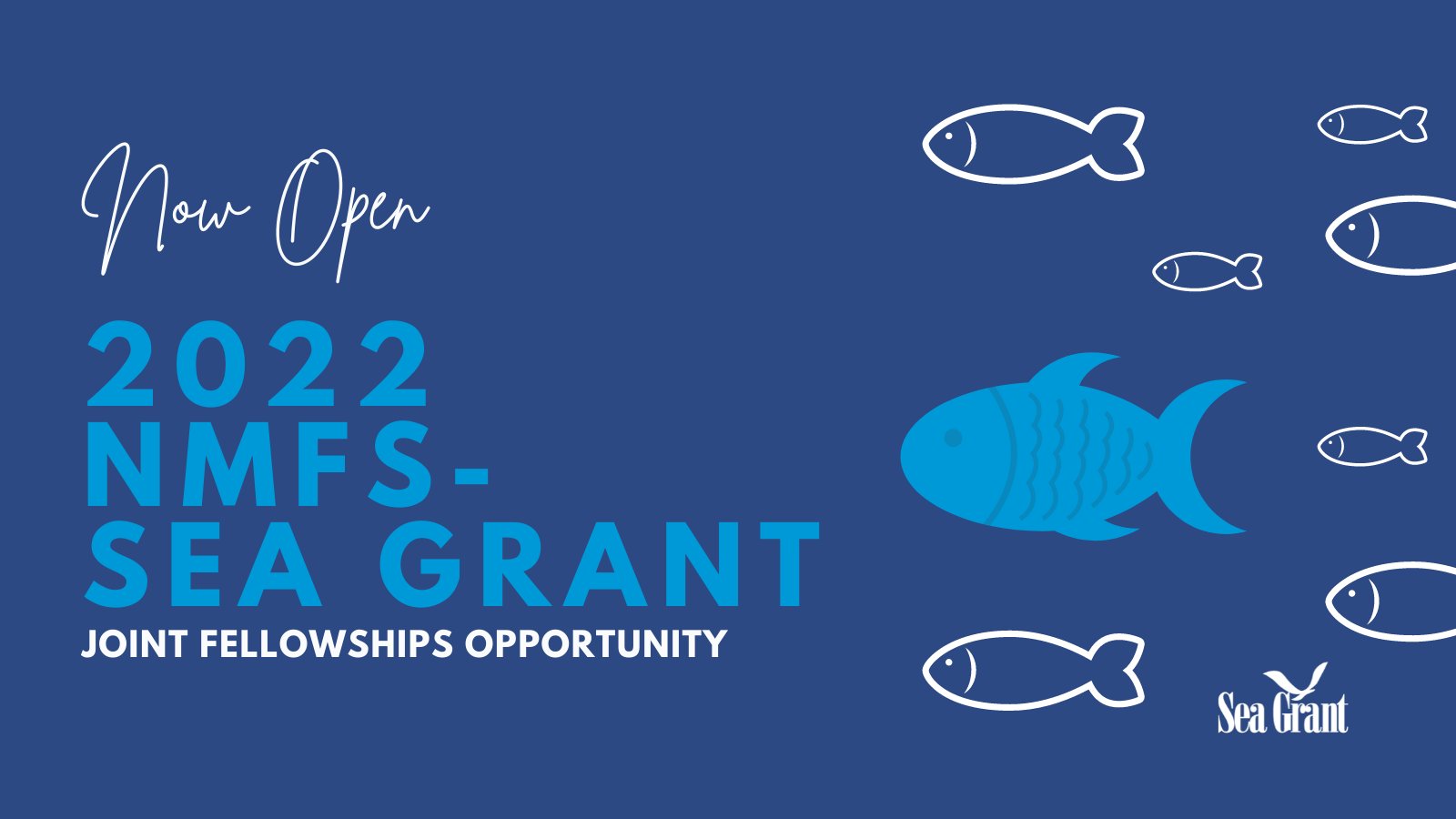The NMFS-Sea Grant Joint Fellowship Program in Population and Ecosystem Dynamics and Marine Resource Economics is designed to help Sea Grant fulfill its broad educational responsibilities and to strengthen the collaboration between Sea Grant and the National Marine Fisheries Service (NMFS).
Since 1990, Sea Grant and NMFS have partnered to train students through this joint fellowship program in two specialized areas: population and ecosystem dynamics as well as marine resource economics. Population and ecosystem dynamics involve the study of fish populations and marine ecosystems to better assess fishery stock conditions and dynamics.
The goals of the NOAA Fisheries/Sea Grant Fellowship Program are:


